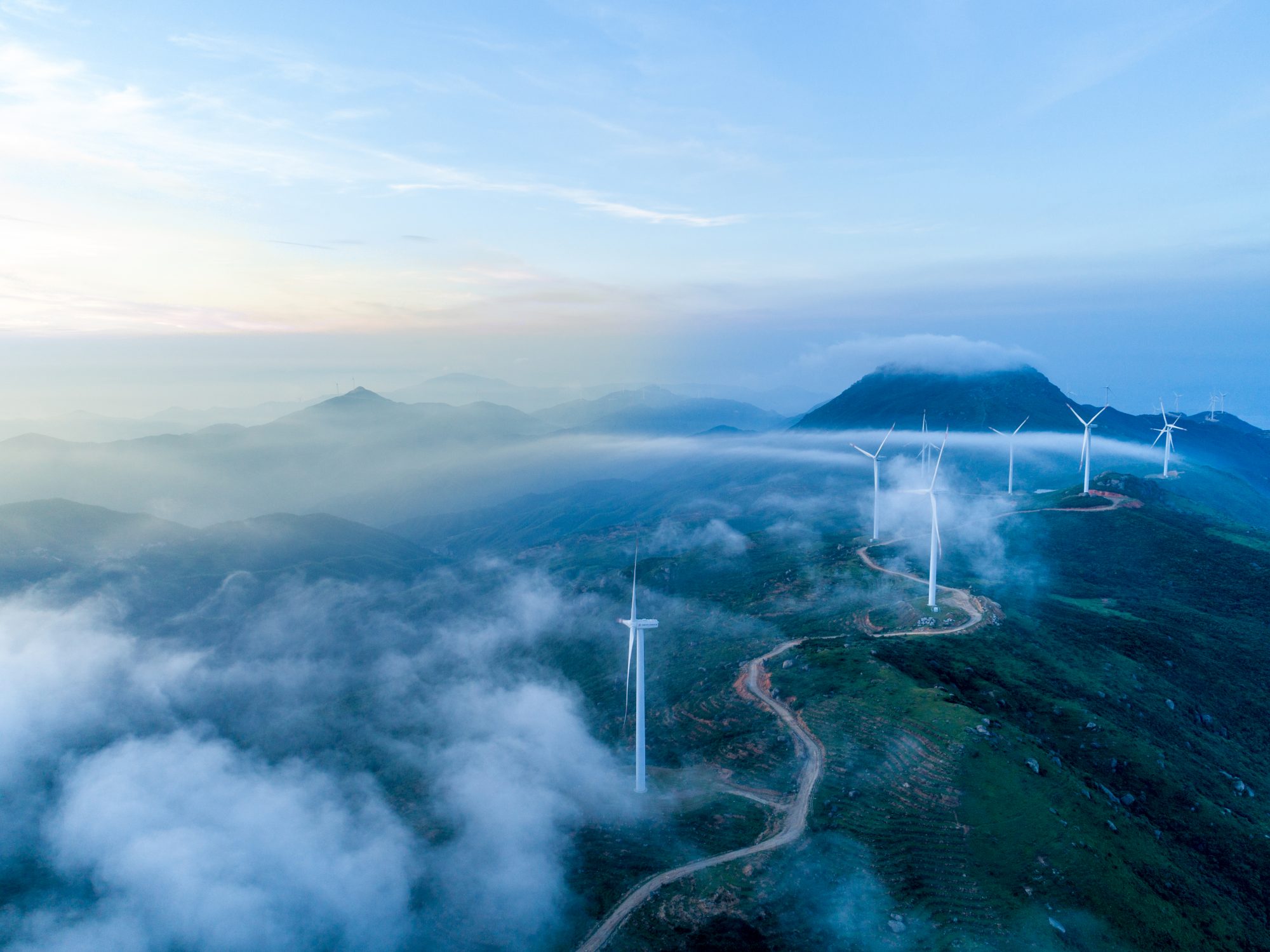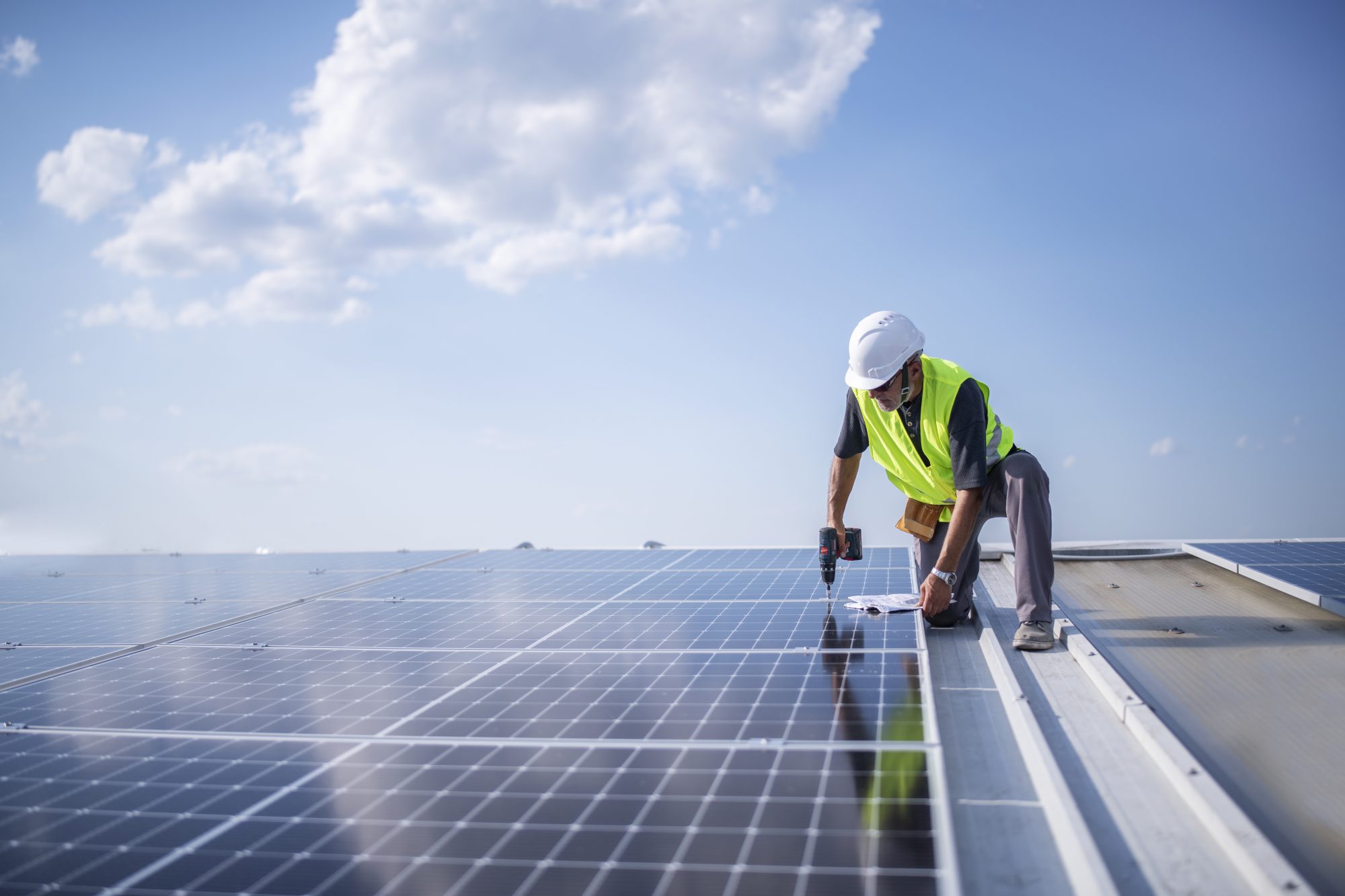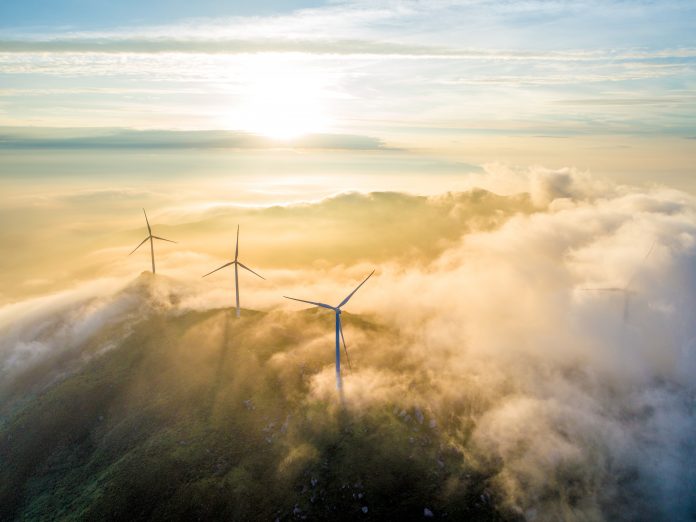The duality of the pandemic and the effects of the war in Ukraine have provided a wake-up call to the renewable energy agenda across Europe
The pandemic has shined a light on people and the planet, while the war in Ukraine unnerved many countries who are now questioning their energy security.
If these events were not enough to help wean countries off fossil fuels, the timely and sobering climate report published by the IPCC (The Intergovernmental Panel on Climate Change) should.
The report clearly outlined the devasting effects of climate change, laying bare the fact there is little chance of keeping the world from warming by more than 1.5C.
The world has already warmed to 1.1C, and now the experts say that this will likely reach 1.5C in the 2030s.
Time to press ‘the fast-forward button’ on net zero efforts
UN secretary general Antonio Guterres stressed that it was time to press ‘the fast-forward button’ and that all countries should bring their net zero efforts forward by a decade.
The positive and more hopeful aspects of the report highlighted that clean energy and technology could be exploited to avoid the rising temperatures that are causing the extreme weather conditions that are destroying homes and livelihoods, leaving millions facing hunger as well as increasing losses of vital ecosystems.
The clean transition is underway: Low-carbon and renewable energy options
The good news is that the switch to low-carbon options has begun.
The International Energy Agency (IEA) predicts that solar power will be the world’s dominant source of electricity by the middle of the century, helping to tackle climate change and reduce air pollution from greenhouse gas (GHG) emissions.
Energy analysts Ember unveiled their latest report on global electricity consumption, stating that last year marked a big step forward, with initial estimates suggesting that 2022 was a record year for renewable energy.
Solar, wind, hydro, geothermal and ocean energy use must expand
Solar, wind, hydro, geothermal and ocean energy use must expand much faster to reach net zero targets.
The report explained that these sources need to increase their share of the total energy supply from just over 5% today to 17% by 2030.
Annual renewable energy use must increase on average by 13% by 2030, twice as much as over 2019-2022
To achieve this, annual renewable energy use (not including bioenergy) must increase on average by 13% by 2030, twice as much as over 2019-2022. Once again, we were reminded to act now.

The UK cannot afford to rest on its laurels
Although the UK is considered a world leader in its net zero efforts, we must go further and do it faster.
This is especially important with key policies announced in the last year by the EU and US, specifically REPowerEU and the US Inflation Reduction Act, which both aim to accelerate renewable electricity and deployment in the coming years.
The UK cannot afford to rest on its laurels as analysts at Ember say that solar power’s growth in the UK was slow compared to the global average, stating that the UK generated 13.4TWh from solar last year, up just 1TWh.
In contrast, the Netherlands was the top European country for solar growth last year. The country generated 15% of its electricity from solar, up 4.5% in 2019, partly driven by government policies.
UK may have lagged in solar power but fared far better in wind power.
The UK may have lagged in solar power but fared far better in wind power. Generation from wind turbines in the UK increased by 23%, or 15TWh.
The country is well suited to generating power from wind, it is much more efficient for us than the sun year-round, and the shallow waters of the North Sea mean that fixing offshore wind turbines to the seabed is easier and cheaper.
However, the point is not that one source is better than the other. More than the two technologies can complement each other and work together.
The UK government recently announced a £30 million boost
To support the UK’s transition towards cheaper, clean, domestically produced energy, the Government recently announced a £30 million boost to develop technology that will help to capture and store more renewable energy for longer.
This technology is essential if we are to achieve energy security and efficiency, as the sun doesn’t always shine, and the wind doesn’t always blow.
The Government needs to do more to speed up this transition.
Still, it was a move in the right direction, signalling that we need to scale technologies that will promote the adoption and efficiency of renewable energy.

Tips to decarbonise your organisation
Over 80% of FTSE100 companies have articulated a net zero target to their shareholders.
Over half have established some form of environmental, social and governance (ESG) committee at a board level.
For those organisations who do not yet have a decarbonisation strategy, getting started may be daunting, but they must act now. Consider some of these tips to speed up your strategy or to get you started:
- It’s important to recognise that it’s a long-term process and, if you are to do it correctly, accept that you won’t achieve your goals immediately.
- Develop a phased approach to stop it from being overwhelming (or even becoming boring). Since 2018 we have adopted a phased approach to installing solar panels across several of our facilities worldwide. Currently, over half (58.7%) of the energy used by the group is renewable. The aim is to increase this to 80% by 2025 and 100% by 2030.
- Understand that there is no one ‘right way’ to decarbonise your organisation. Your strategy must fit your business model and must evolve with it. For example, at Mainetti, we developed a four-stage plan to decarbonise our operations that was related mainly to reducing our electricity usage and limiting travel.
- In addition, we utilise onsite renewables where possible, choose green tariffs and purchase energy attribute certificates.
- Organisations must find what is important to them, and with any changing strategy, there will be challenges to keeping on track.
- It’s vital to have accurate and consistent measurements to set realistic targets – what you cannot measure, you cannot improve.
- Look for external help, as measurement can be difficult and independent; third-party verification lends more weight. We started by ensuring we could accurately measure both our energy usage and the source of the electricity.
- Sub-metering and energy audits helped to identify the major energy users and helped to track the improvement.
Lead from the top but listen to employees
It must be a collective effort: Make the strategy and goals clear, benchmark and communicate them often.
Promote forums and communication channels where the ideas of your workforce can be reviewed and, where possible, actioned.
There are many things you and your team can do easily; some of the low-hanging fruit is obvious (such as turning off lights and equipment when you are not using them), but for other things, you may require help.
Look externally for new ideas and opportunities to collaborate because one country, company or individual will never have all the ideas.
Get involved in organisations such as The Ellen MacArthur Foundation, which develops and promotes ideas around the circular economy.
You will learn best practices and can cooperate and bring about real change.
A great example of this is the WRAP Collaborative project in the US to promote water reuse practices.
Organisations that are significantly driven by revenue and profitability can be derailed by upfront costs, but these should be viewed as investments.
Not every organisation has the capacity to utilise onsite renewables, so choosing electricity suppliers that have green energy tariffs is an option.
The decarbonisation of the power sector is underway
There are multiple benefits to utilising renewable energy, the most important being that it emits no or low greenhouse gases, which is good for the planet and good for our health.
Installation costs are falling year on year, and onsite generation, where possible, protects from the huge spikes in energy prices we have seen in 2022 and 2023 resulting from the uncertainty of supply caused by the war in Ukraine.
We should be encouraged that the decarbonisation of the power sector is underway, and it will be a major milestone reached when power sector emissions begin to fall year-on-year, but the world is not there yet.
While government incentives and legislation will help spur more businesses to adopt renewable energy, the sobering evidence unveiled by the IPCC report should be the catalyst that encourages us all to act faster and go further with our efforts.
This piece was written and provided by Keith Charlton at Mainetti.











